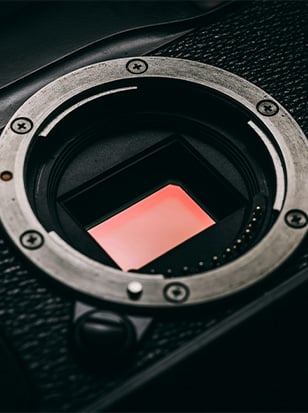
Fujifilm’s X-M1 arrives bearing a number of similarities to the existing X-E1, such as its 16.3MP X-Trans CMOS sensor and X-series lens mount, but there have been quite a few changes in order to make the model more compact and up to date. We’ve sifted through the spec sheet to see exactly what’s changed:
Wi-fi
The X-M1 is the first X-series camera to offer wireless functionality, following some of Fujifilm’s Wi-fi-ready compacts released earlier in the year. This allows users to transfer images immediately to their smartphones or tablets, or alternatively to social networking sites, while location information captured on a smartphone may also be embedded into the metadata of captured images. Furthermore, through the PC Autosave feature, the camera can also be programmed to wirelessly backup images to a PC.

Processor
The X-E1 sports Fujifilm’s EXR Pro Processor, while the X-M1 is equipped with the same EXR Processor II engine that featured on the X100s and HS50 EXR.
LCD screen
The LCD screen is significantly different between the Fuji X-M1 and the Fuji X-E1. While the X-E1’s display measures 2.8in and contains 460k dots, the X-M1’s display increases this to 3in and squeezes in 920k dots. Just as significantly, the X-M1’s display is mounted on a hinge which allows it to be pulled away from the camera and tilted, whereas the X-E1’s display is fixed.

Burst rate
While the X-E1 manages a maximum 6fps burst rate, the X-M1 drops this ever so slightly to 5.6fps.
Viewfinder
The X-E1 boasts a 2.3m-dot OLED electronic viewfinder, while the X-M1 drops this altogether.
Grip
The X-E1’s grip (below, left) is somewhat separate from its body, although the X-M1’s grip (below, right) flows more naturally from the rest of the front plate, much like it does on the Fuji X20.

Smaller
The X-M1 is roughly 12mm shorter in length than the X-E1 and around 9mm smaller, although body thickness is roughly the same.
Lighter
Fujifilm has also shaved off 20g from the X-E1’s weight, with the X-M1 weighing just 280g without its battery, memory card and accessories next to the X-E1’s 300g.



